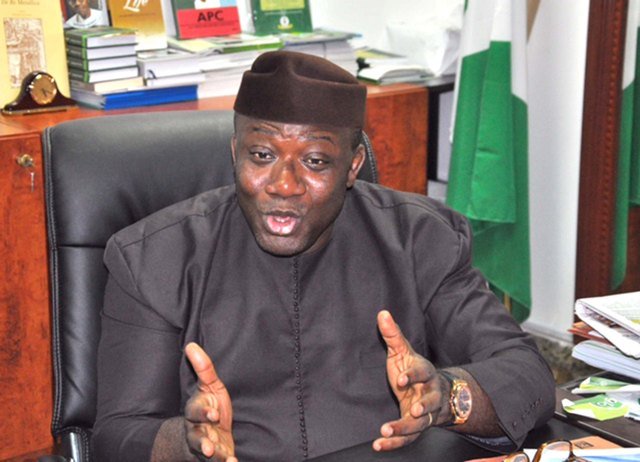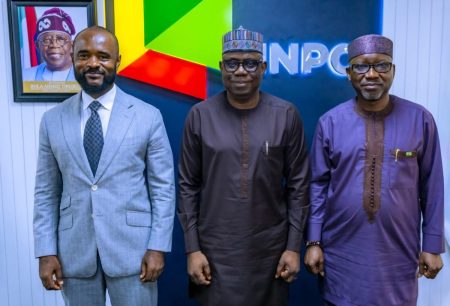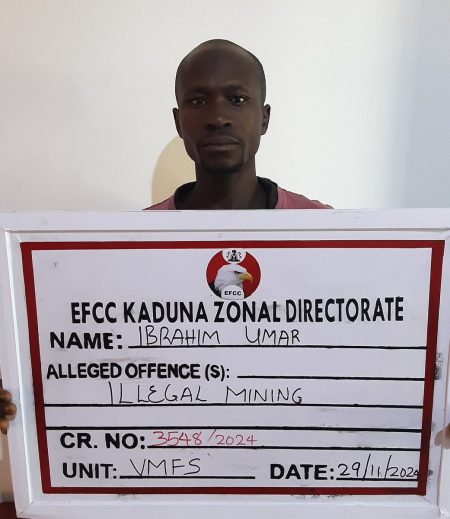
*Targets N141 billion GDP for mining by 2020
Princewill Demian
22 December 2017, Sweetcrude, Abuja – The Minister of Mines and Steel Development, Dr. Kayode Fayemi, has disclosed that the mining and minerals sector contributed N3.5 billion to the Federation Account in 2017.
Fayemi, who made the disclosure at the 2017 End of Year Ministerial briefing on Thursday in Abuja, stated that the sector remained a critical factor in the implementation of the Economic Recovery and Growth Plan (2017-2020) which projects that the minerals and metals sector would be one of those to drive Nigeria’s recovery by growing sectoral contribution to GDP from N103 billion (2015) to N141 billion in 2020, at an average annual growth rate of 8.54 percent.
He said, “In 2017, the ministry featured in the story of our journey to economic recovery and consolidation; the GDP figures for second quarter 2017, the National Bureau of Statistics indicated that the economy grew by 0.55 percent.
“The improved performance was not only the Oil and Gas sector but other economic activities like mining; the sector grew by 2.24 percent in that quarter.”
The minister stressed that “The mining sector remains a critical factor in the implementation of the Economic Recovery and Growth Plan (2017-2020) which projects that the minerals and metals sector will be one of those that will drive Nigeria’s recovery.
“It is also expected to grow sectoral contribution to GDP from N103 billion (2015) to N141 billion in 2020, at an average annual growth rate of 8.54 percent.”
According to him, “We are also working towards the completion of the equipping of the NGRL, as well as the completion of our National Mineral Database, and will, in collaboration with the China Geological Surveys conduct an extensive geochemical mapping programme across the country.
“The aim is to work with competent consultants to deploy logistical and technical equipment with radiometric, magnetic, electromagnetic and allied capabilities, to capture and provide analysis of the geology of Nigeria and the mineralisation of the areas covered.
“We consider this a very important part of our work in 2018, to deliver a comprehensive bankable data of our mineral endowments across the country.”
He added that “Our reforms which we advanced in 2017 have been targeted at repositioning and de-risking the sector. We are extremely proud of our contributions to the economic recovery we are now witnessing in the country and are geared to do more in 2018 to contribute to building a strong and diversified economy.”
The minister posited that “The Nigerian Mining industry holds a promise that we would continue to work hard to deliver. We expect to sustain the growth trajectory we have achieved by stimulating new exploration activities, increased production from active mining, functional (and expanded) processing and refining capacity, and higher value-addition in exports.
“The net outcome will be the creation of thousands of direct jobs and potentially hundreds of thousands of indirect jobs.
He added that “Notably, one of the key projects we are embarking upon in 2017, in partnership with some state governments and the private sector is a Gold Purchase scheme.
“The mandate of the scheme will include equipping of the artisanal miners; provision of extension services; and the off-take of all the gold produced by the participants in the scheme. The aim is to facilitate employment creation, poverty reduction, an increase in revenue to the federation account.”
The minister said a Special Purpose Vehicle (SPV) would be licensed by the government to manage the gold purchase scheme.
According to Fayemi, the year 2017 had been very eventful, adding that the ministry exertions were centered on advancing the reforms that began in 2016, in line with President Muhammadu Buhari mandate to diversify the economy through the mining sector.
He said in line with the ‘Roadmap’ for the sector approved in August 2016, the ministry’s aspiration remained to “build a world-class minerals and mining ecosystem designed to serve a targeted domestic and export market for Nigeria minerals and ores.”
He said the ministry would undertake extensive Electromagnetic Airborne Geophysical Survey of promising parts of the country in 2018 with the aim to work with competent consultants to deploy logistical and technical equipment with radiometric, magnetic, electromagnetic and allied capabilities, to capture and provide analysis of the geology of Nigeria, and the mineralization of the areas covered.
He further said the ministry had established a new department to monitor and control the local mineral trade chain comprising purchasing, sales, and export, adding that in its short span, the department had been able to put forth a roadmap for the development of a sustainable framework for mineral trade and export ecosystem.
He explained the department is working in collaboration with the MinDiver Project Office, the Nigerian Export Supervision Scheme (NESS), Nigerian Export Promotion Council (NEPC), Nigerian Customs Service (NCS) among others.
He added that new mineral export guidelines and procedures had been developed as immediate remedial measures to curb revenue leakages from mineral exports, adding that the guidelines would be effected in the first quarter of 2018.
Meanwhile, the minister has promised that the ministry would gear to do more in 2018 to contribute to building a strong and diversified economy.
According to him, technical and business innovation is continually needed to maintain the industry’s international competitiveness and to ensure that mining is conducted in an environmentally sustainable manner.
He said ministry would sustain the growth trajectory achieved by stimulating new exploration activities, increased production from active mining, functional (and expanded) processing and refining capacity.
“The net outcome will be the creation of thousands of direct jobs and potentially hundreds of thousands of indirect jobs,” he stated.
He said the bulk of the fund realised from intervention fund so far would be used for exploration activities.
He promised that 2018 would be the year of revival for Ajaokuta Steel Company and Aluminium Smelting Company of Nigeria (ALSCON) at Ikot Abasi, Akwa Ibom.



